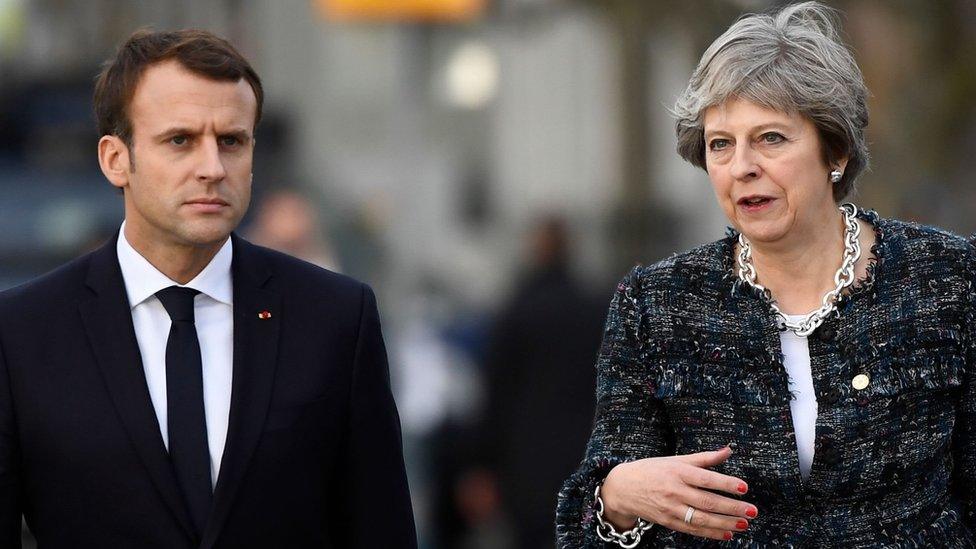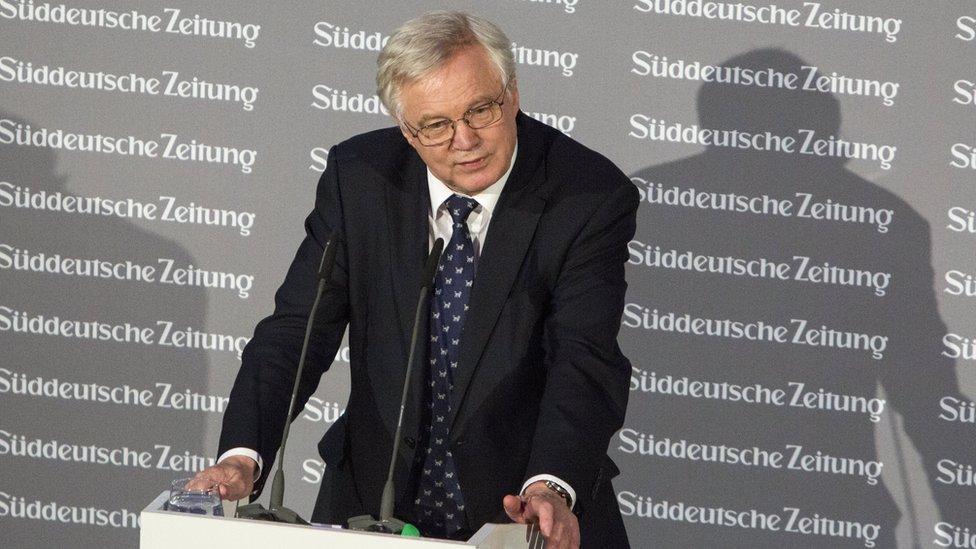Brexit: The crunch is coming for Theresa May
- Published

Hard conversations are coming for Theresa May
Did you watch Theresa May try to make the best of her Swedish photo opportunities yesterday? Or listen to David Davis as he urged the EU side to blink first, rather than the UK side?
They both know that time is short to guarantee the UK gets what it wants and pushes the EU to move to the next stage of vital Brexit talks at the next leaders' jamboree in December.
What's been missing until now is a sense of when the UK will be able to resolve its own short-term position.
Is the cabinet willing to sanction a political move to offer the promise (not the figure) of more money on the table to settle our EU accounts?
And if ministers are willing to do so, what do they expect in return - and when?
It's been all too obvious that the EU side has, for a long time, been clear that they'll only budge when the UK is ready to promise - even vaguely or implicitly - a lot more cash.
The hold-up has in part been that the UK has been pushing to make sure that taxpayers at home don't shell out when they don't have to.
And also because UK and EU officials have taken a very different approach to settling the bill.
But it's also the case that cabinet ministers have not been ready to agree how they want to proceed, and without that political agreement, it's been hard for the negotiations about the money to progress.
Support, or not?
However, the crunch is coming fast.
I'm told on Monday there will be a significant meeting of the small cabinet committee that decides the Brexit negotiating strategy.
Several government sources say the meeting of the Brexit strategy group could change the course of our departure.
The question to be answered on Monday could be profound.
One source told me: "People have to decide if they really want to make progress and support this prime minister, or not."
For some in government that tight group of cabinet ministers must on Monday take a decision as vital as that - do they want to do a deal with the EU, or not?

David Davis has urged EU negotiators to blink first
Of course there is bravado on both sides.
As ever, whether thinking of talks on the continent, or in government, take every utterance with a pinch of salt.
Brexiteer ministers believe that they need to be clearer about what the UK would get in return for paying a bigger bill - a view that would no question have sympathy among swathes of taxpayers.
They are not, thus far, ready to sign up to what they see as Number 10's version of the next move - a promise to pay a lot more cash, potentially as much as 50bn-60bn euros.
They do not rule it out completely, but not before it is clear what we get in return.
But the lack of clarity in government about our eventual destination - whether we are closely, or loosely tied to the EU after departure - makes that hard to conclude.
One insider said: "We still have to settle the broader question - what do we actually want? That's the point to consider."
The discussion on Monday could therefore spill into conversations about the future relationship after Brexit, as well as cold hard cash.
Hard conversations
For some in government, Monday feels vital. For others, it's OK in theory to let another decision point go past without conclusions.
But if they don't reach any conclusions, some in government believe that sets us on a course to crash out with no deal.
Time is running short for the discussion in government that Theresa May has put off for so long.
But one insider said there is no "limping" on until March: "We have to just decide."
Donald Tusk's deadline is hypothetical, but the pressure to move on is now not just coming from Brussels or Berlin, but from some elements in government.
Theresa May is yet to give her own public view.
But hard conversations don't get easier the longer you wait.